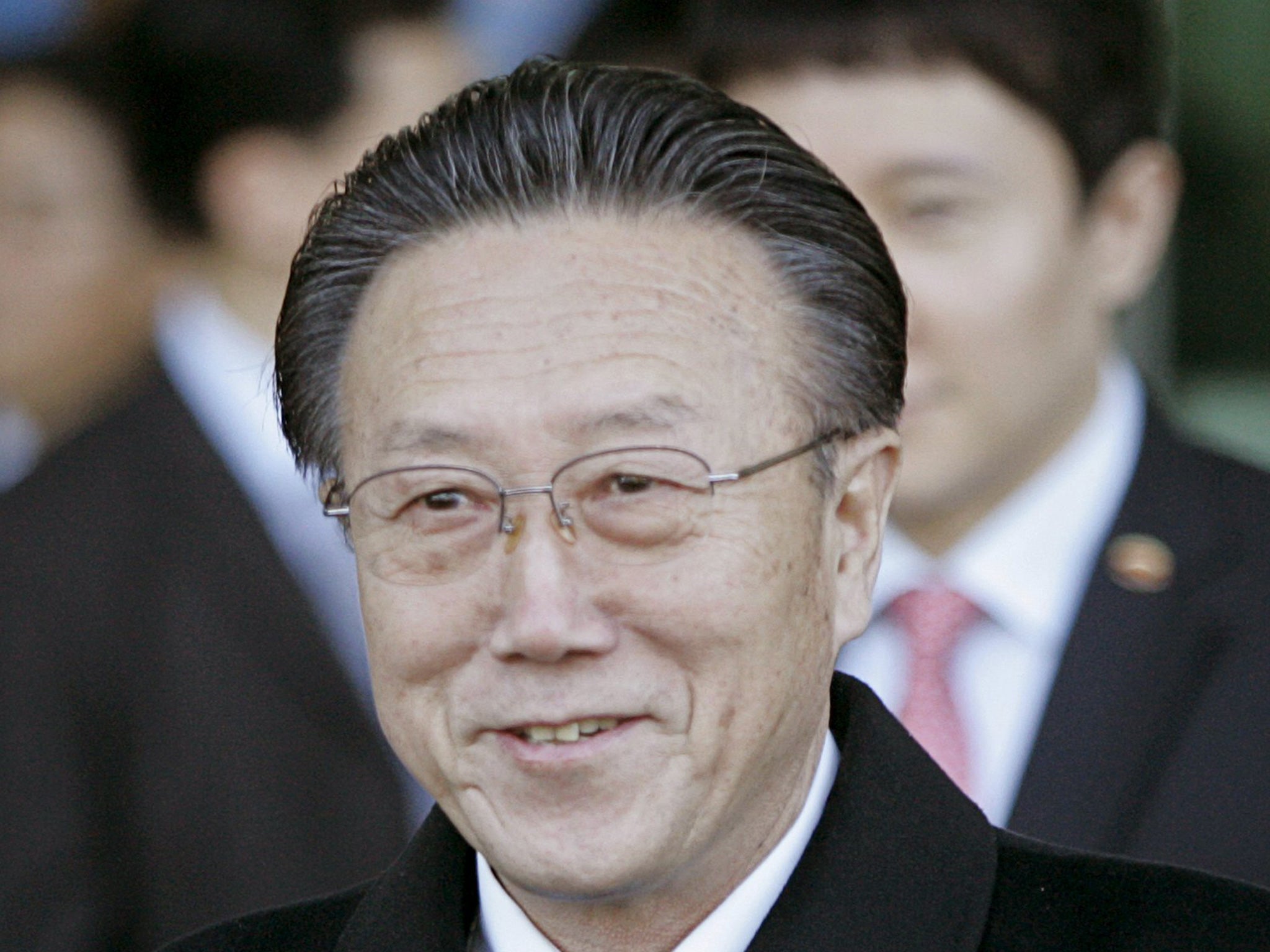Kim Yang-gon: North Korean official who helped to maintain the state's precarious diplomatic ties with Seoul
Analysts in Seoul say strained ties between the rival countries could continue following the unexpected death of Kim

Your support helps us to tell the story
From reproductive rights to climate change to Big Tech, The Independent is on the ground when the story is developing. Whether it's investigating the financials of Elon Musk's pro-Trump PAC or producing our latest documentary, 'The A Word', which shines a light on the American women fighting for reproductive rights, we know how important it is to parse out the facts from the messaging.
At such a critical moment in US history, we need reporters on the ground. Your donation allows us to keep sending journalists to speak to both sides of the story.
The Independent is trusted by Americans across the entire political spectrum. And unlike many other quality news outlets, we choose not to lock Americans out of our reporting and analysis with paywalls. We believe quality journalism should be available to everyone, paid for by those who can afford it.
Your support makes all the difference.Kim Yang-gon was North Korea’s most senior official in charge of relations with South Korea, and his death at 73 in a car crash is not good news for ties between the two countries. While North Korea’s roads are notoriously poor, the lack of detail helped to feed speculation in the South Korean media that Kim’s death was suspicious – there has been similar speculation in recent years following reported traffic deaths of high-level North Korean officials.
Before his death, there had been no signs that Kim was engaged in any serious factional feuding with other officials. He was among officials who most frequently accompanied the country’s leader, Kim Jong-un, during his inspection visits to army units and factories, a strong indication that he was one of the leader’s most trusted aides – and indeed, the news report announcing his death described him as the leader’s “closest comrade-in-arms” who had made “dedicated” efforts to push for unification with South Korea.
Analysts in Seoul say strained ties between the rival countries could continue following the unexpected death of Kim, who had long handled relations with the South. Earlier this month, the two countries ended rare high-level talks without any agreement. “I worry that we cannot avoid long suspension of a dialogue between South and North Korea” following Kim’s death, said Cheong Seong-chang, of the Sejong Institute in South Korea.
In August, Kim attended marathon talks at the Korean border that defused a military stand-off triggered by land mine explosions that maimed two South Korean soldiers. The two Koreas subsequently resumed their first reunions of families separated by war since 2014, but hopes of improved ties subsided after the inter-Korean talks failed to reach any breakthrough.
Kim visited South Korea in 2009 to pay his respects to the late President Kim Dae-jung, who had held the first inter-Korean summit with Kim Jong-il in 2000, and was believed to have played a key role in arranging a second summit in 2007. Most rapprochement agreements remain stalled or have never been implemented after animosities flared again between the rivals. The Korean Peninsula remains in a technical state of war since the 1950-53 Korean War ended with an armistice rather than a peace treaty.
A series of recent executions, purges and dismissals that Kim Jong-un has orchestrated have been seen by outside analysts as a way of further strengthening his grip on power; but whether Kim Yang-gon’s death is part of that process may never be known.
KIM HYUNG-JIN
Kim Yang-gon, politician: born 24 April 1942; died 29 December 2015.
Join our commenting forum
Join thought-provoking conversations, follow other Independent readers and see their replies
Comments